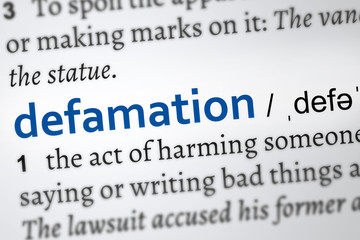
“The dissenting opinion was buried near the bottom of a busy orders list issued at the end of the U.S. Supreme Court term on July 2, but it has stirred tremors of concern among advocates for press freedom.
Justice Neil M. Gorsuch called for the reconsideration of New York Times Co. v. Sullivan, the landmark 1964 decision establishing that public officials suing for defamation must prove that an allegedly false statement was published with “actual malice”—that is, with knowledge that the disputed statement was false or with “reckless disregard” for whether it was false or not.
“Rules intended to ensure a robust debate over actions taken by high public officials carrying out the public’s business increasingly seem to leave even ordinary Americans without recourse for grievous defamation,” Gorsuch wrote.
The opinion was a dissent from denial of certiorari in Berisha v. Lawson, in which the high court declined to hear the appeal of an Albanian man who contends he was defamed by his portrayal in a 2015 book about three young men from Miami Beach who became international arms dealers.
Lower courts found that the Albanian, Shkelzën Berisha, was a limited public figure for the purposes of the controversy explored in the book. Thus, he could not recover without proving that the book’s author and other defendants had acted with actual malice, which those lower courts found he did not prove.
Justice Clarence Thomas wrote his own dissent from the cert denial in Berisha’s case, repeating themes he first expressed in a 2019 opinion that called for reconsidering Sullivan and the actual malice standard, at least as it applies to public figures, a category distinct from public officials.
“This court’s pronouncement that the First Amendment requires public figures to establish actual malice bears ‘no relation to the text, history, or structure of the Constitution,’” Thomas said in his Berisha dissent. He cited a dissent in another defamation case from earlier this year by Senior Judge Laurence H. Silberman of the U.S. Court of Appeals for the District of Columbia Circuit.
“New considerations have arisen over the last 50 years that make the New York Times decision … a threat to American democracy,” Silberman wrote. “It must go.”
This article was originally posted in the ABA Journal.
To read the rest of the article click here.


